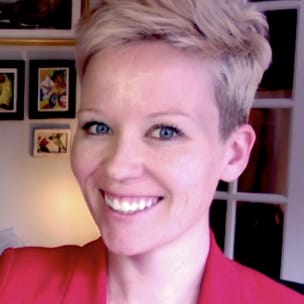story

Classroom Strategies

Professional Development
On social media #goals is usually shorthand for: “Wow, I’d really like to do that, too.”
Share
On social media #goals is usually shorthand for: “Wow, I’d really like to do that, too.” As teachers, we are used to setting goals: I want my students to be able to ___ by ___; by December I need to have ___; this year I’m really going to ____; the list goes on. But, what if our goal was, shockingly… to have fewer goals?
The saying goes that the road to you-know-where is paved with good intentions, and I think the same goes for the road to burnout. As teachers, we get ambitious and optimistic, as we should, but we simply do not need to do all the things. When setting goals, I work to make sure my intention matches the impact—meaning, if I say ‘yes’ to ___ or decide to work on improving my ____, I need to make sure I fully grasp the potential consequences, the impact, for better or for worse. Buying concert tickets in November because I know I’ll welcome a break and want something to look forward to is a great idea … until the concert arrives and that weeknight outing I thought would be a blessing is actually more hassle than it’s worth, followed by feelings of guilt for wasting time, not to mention the price of the tickets, and so on. I should’ve been more honest with myself and thought, “Nope. Would be fun, but plans on a Tuesday in November will stress me out more than necessary, so I have to pass.” The same goes for being on one more committee, going to yet another workshop, or volunteering to do something that we can’t fully pour our energy into. These goals can be lofty and exciting, but in the long term, they may actually be more detrimental than helpful.
When deciding what we want to improve, adjust, and scrap altogether each year, it’s paramount that we do a little categorization. For example, a few years ago, my personal goal for myself during the school year was simply to read more, namely fiction. My professional goal was to grade everything, input it into the gradebook, and pass it back to students within three days… and I did! It was unbelievable, and let me tell you: everything else improved when that did. I was baffled, and slightly embarrassed, at how much easier it made planning, rapport, collaborating, and even making copies when grading was taken care of.
Those are two examples of having one goal for my personal life and another for my professional life.
Now, as a graduate student once again, reading for fun really isn’t something I can sustain throughout the school year, so I’ve adjusted my personal goal: nothing for school or work on Sundays. Gulp. Yep. There it is, out in the universe, I said it. I wanted to carve out more, measurable, anticipate-able time with my husband to hike, go to brunch, hang out, and do whatever we want; Sunday was a simple way of doing that. Therefore, the impact: I’m going to have to work more efficiently throughout the week for that to happen, and I’m excited about the challenge. Professionally, I want to continue last year’s grading goal as well as maintain my bulletin board throughout the year, making it interactive with students instead of the same boring setup all the time. I created templates for the units throughout the fall semester, and I am ready to integrate lessons whose student-created products can be displayed. Both goals are separate from each other, measurable, and carry a sustainable impact.
Less guilt, less stress, less sense of imposter syndrome, less to keep track of —fewer goals that are more specific and intentional end up being less to keep track of and think about. As teachers, we already have too much on our to-do lists as it is. Why was I self-imposing so much more for so long? One personal goal and one professional goal have been my go-to now for two years, and I no longer feel the stress of, “Am I doing enough? Am I improving quickly enough? Am I enough?”
Counterintuitively, because I’m not looking to try every tech tool, lesson idea, rubric, or game that comes my way, I’m actually able to hone more of the things I already do well and still try lots of new things. There isn’t the (admittedly self-imposed) pressure of needing to try everything and be awesome at it. If it doesn’t feed my goal in 2019-20 of work-free Sundays and being able to give fast effective feedback/grades, I am not here for it. The byproduct of narrowing my focus in some ways means I can make better use of my time and feel good about the things I already know are working. For me, this in itself is motivating and reassuring.
When setting goals for ourselves as teachers, I think it’s good to remember that there are professionals who get paid to be on-call 24/7. Ours is not one of them. If we want the best for ourselves and therefore for our students, we need to make sure we are not putting more work on ourselves than is physically, mentally, or emotionally feasible, while still doing our job to the best of our abilities. This line can be fine, but it has been my experience that when I’ve set goals, pared them down, and crafted them to reflect what I really want and need, my life and my teaching have both improved.
Proficiency-based language teaching is a huge undertaking that takes major shifts, mentally and logistically, but these shifts don’t have to happen all at once. They’ll still get done—one goal at a time.

Share: